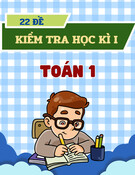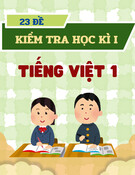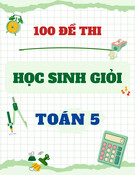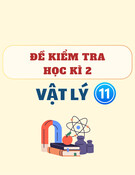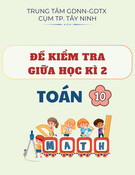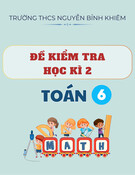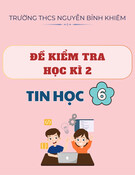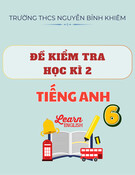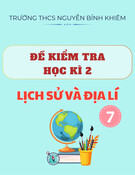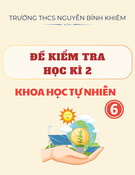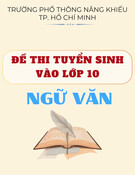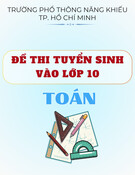
Trang 1/4 - Mã đề thi 417
SỞ GIÁO DỤC VÀ ĐÀO TẠO
NGHỆ AN
ĐỀ THI CHÍNH THỨC
(Đề thi có 04 trang)
KỲ KHẢO SÁT CHẤT LƯỢNG KẾT HỢP THI THỬ
LỚP 12 – ĐỢT 1, NĂM HỌC 2020 - 2021
Bài thi: TIẾNG ANH
Thời gian làm bài: 60 phút; không kể thời gian phát đề
Họ và tên thí sinh:....................................................................
Số báo danh: ............................................................................
Mark the letter A, B, C, or D on your answer sheet to indicate the correct answer to each of the following
questions.
Question 1: Deborah is going to take extra lessons to ______ what she missed while she was away.
A. catch up on B. take up with C. cut down on D. put up with
Question 2: The more you relax and be yourself, the more ______ you are to succeed.
A. possible B. easy C. probable D. likely
Question 3: As a teacher she was very selectively accepting only a small number of _______ gifted pupils.
A. exceptionally B. exceptional C. unexceptionally D. exception
Question 4: She got a terrible mark in the exam, so she ______ very hard at all.
A. mustn’t have worked B. can’t work C. didn’t need to work D. can’t have worked
Question 5: You can’t always play it safe. Sometimes you need to ______ a risk.
A. put B. have C. take D. make
Question 6: We do not need much furniture ______ the room is small.
A. although B. despite C. because of D. because
Question 7: The weather has been terrible since yesterday. ______, all activities have stopped.
A. Because B. So that C. Now that D. Therefore
Question 8: I think I ______ my door key. I can’t find it anywhere.
A. will lose B. had lost C. am losing D. have lost
Question 9: Recently I haven't got ______.
A. much mail B. many mail C. any mails D. many mails
Question 10: Nowadays, children would prefer history ______ in more practical ways.
A. being taught B. to teach C. to be taught D. teach
Question 11: With my working-class background I feel like a ______ out of water among the high-society people.
A. shark B. fish C. crocodile D. dolphin
Question 12: Tea is ranked as the number one beverage ______ worldwide, it takes the lead over coffee in both
popularity and production.
A. to have sold B. to sell C. sold D. selling
Question 13: My English friend wasn’t used to ______ chopsticks when he came to Vietnam last year.
A. have used B. using C. uses D. used
Question 14: In my family, all members are responsible ______ doing the household chores.
A. for B. on C. at D. with
Question 15: All the students have been ready for the test, ______?
A. hasn’t they B. haven’t they C. have they D. don’t they
Read the following passage and mark the letter A, B, C, or D on your answer sheet to indicate the correct
answer to each of the questions from 16 to 22.
The first year of life
The Danish archaeologist Christian Jürgensen Thomsen, curator of the National Museum of Denmark
(1816–65), was among the first to use the taxonomic approach in the social sciences. In a painstaking study of the
bracteate, a type of ancient pendant found in northern Europe, he charted a variety of morphological categories,
such as insignia and size. By combining the typologies thus created, he showed that these Nordic ornaments had
developed from earlier Roman coins. Thomsen later used similar techniques with a much larger body of data and
eventually developed the basic chronology for Old World antiquities: the Stone Age, Bronze Age, and Iron Age.
Ideas and expressive culture also proved susceptible to taxonomic analysis. The American ethnologist
Lewis Henry Morgan gathered data from a large number of Native American tribes and created a typology based
on their kinship terminology, which he presented in Systems of Consanguinity and Affinity of the Human Family
(1871). Influenced by the evolutionary theses of Charles Darwin and Herbert Spencer and by Thomsen's three-age
system, Morgan later proposed a universal sequence of cultural evolution in his book Ancient Society; or,
Mã đề thi 417
























